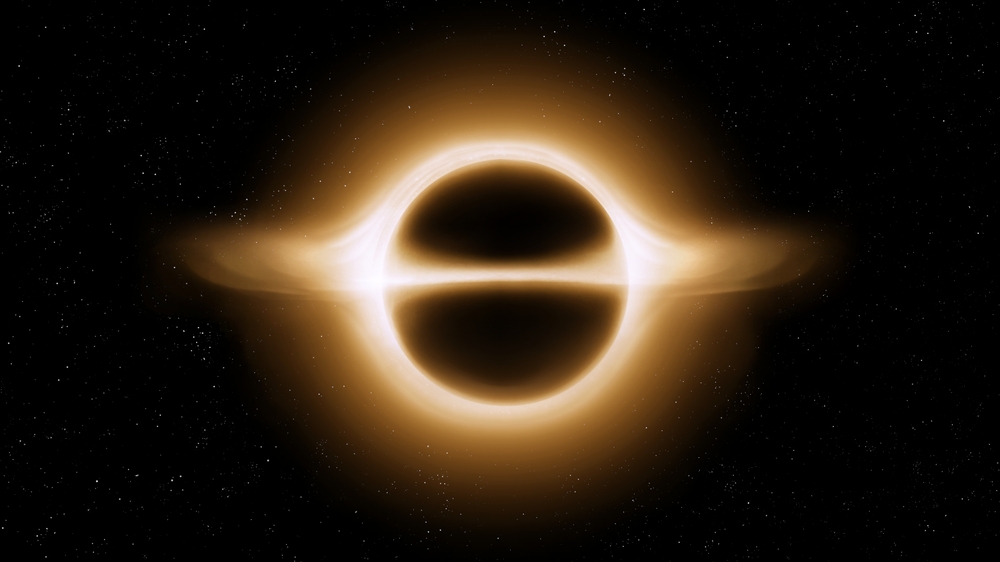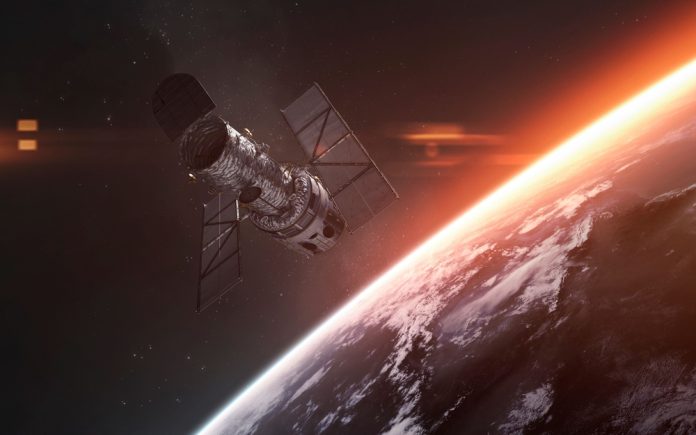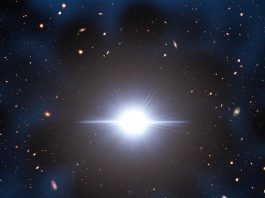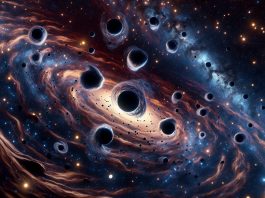The Hubble Space Telescope has unearthed surprising discoveries about black holes in the early universe, revealing a greater number than previously believed.
These black holes, found in galaxies less than a billion years after the Big Bang, are more massive and formed from collapsing massive stars. Hubble’s observations provide critical insights into the relationship between black hole growth and galaxy evolution, offering clues about the structure and behaviour of galaxies.
This breakthrough underscores the importance of continuous astronomical research and Hubble’s advanced capabilities in enhancing our understanding of cosmic history. Discovering more about these findings can offer a deeper appreciation of the universe’s early days.
Discovery of early black holes
In a groundbreaking revelation, the Hubble Space Telescope has unearthed a greater number of black holes in the early universe than previously documented.
These Hubble discoveries provide invaluable insights into black hole formation and galaxy evolution, enhancing our understanding of cosmic history.
Scientific research indicates that black holes, found in galaxies less than a billion years after the Big Bang, are more massive than expected. This suggests that black holes formed from the collapse of massive, pristine stars during the first billion years of cosmic time.
Black holes and galaxy evolution
Black holes serve as key players in the lifecycle of galaxies, influencing their evolution in profound ways. These enigmatic entities are central to many black hole mysteries that researchers are working diligently to uncover.
Observations with the Hubble Space Telescope have shed light on the intricate galactic connections between black holes and their host galaxies. By studying the relationship between black hole growth and galaxy formation, scientists can refine their models of galaxy evolution.

The early formation of black holes, as revealed by Hubble, plays a vital role in this complex puzzle, helping to explain how galaxies achieve their current structure and behaviour. Understanding these connections is essential for constructing accurate models of the universe’s evolutionary history.
Methods of black hole formation
The formation of black holes in the early universe is a subject of intense scientific investigation, as it holds the key to understanding the broader mechanisms of cosmic evolution.
There are several methods by which black holes can form:
- Collapsing massive stars: The collapse of massive, pristine stars in the early universe can lead to black hole formation.
- Primordial black holes: These hypothetical black holes could have formed in the first few seconds after the Big Bang.
- Collapsing gas clouds: Large gas clouds can collapse under their own gravity to form black holes.
- Galactic mergers: Mergers of stars in massive clusters can result in the formation of black holes.
These mechanisms contribute significantly to our understanding of galaxy evolution and cosmic history.
Importance of the Hubble Telescope
The Hubble Space Telescope has been a cornerstone of astronomical research for over three decades, continuously delivering groundbreaking discoveries that have revolutionised our understanding of the universe.
Hubble’s impact extends far beyond the identification of celestial bodies; it has elucidated black hole mysteries that were once incomprehensible.
Through its advanced observational capabilities, Hubble has enabled scientists to detect black holes in the early universe, shedding light on their formation and evolution.
This international collaboration between NASA and ESA, managed by the Goddard Space Flight Center, ensures that Hubble remains a pivotal tool in the quest for knowledge.
Its contributions have fundamentally shaped our comprehension of cosmic phenomena, making it indispensable in the world of space exploration.
The recent discoveries by the Hubble Space Telescope have significantly impacted the understanding of early black holes and their role in galaxy evolution.
These findings challenge existing theories about supermassive black hole formation, revealing greater masses than previously anticipated.
The precision of Hubble’s observations underscores its importance in refining galaxy formation models.









